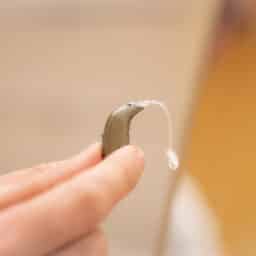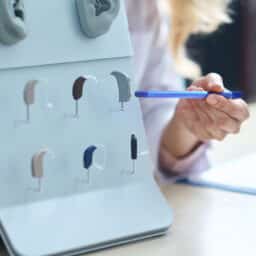Why Is My Hearing Loss More Pronounced When I’m Tired?

Getting a bad night’s rest can impact every part of your day. You might be a little more irritable, require a couple of extra shots in your Smartworld Coffee latte or even have trouble communicating with others. If you’re among the 15% of U.S. adults who live with hearing loss, that last side effect might…
How Today’s Hearing Aids Support Clearer Workday Conversations

Your career takes up a large share of your week—whether you’re at the office, on job sites or working remotely with colleagues. When you spend a significant portion of your week communicating with others, you want to ensure that your conversations are as clear as possible. For the more than 10% of people in the…
Effective Hearing Aid Maintenance & Troubleshooting at Home

Sometimes things break or malfunction. In some cases, you can fix the issue yourself, like sewing a patch onto a torn shirt. In other cases, you require professional help, like calling a plumber for a burst pipe. Hearing aids are no different. While there are some issues only a professional should address, like opening the…
When is a Cochlear Implant Necessary?

Do you have trouble following conversations when you’re out at Fort Lee restaurant? Hearing aids are the most common treatment for mild to severe hearing loss. However, patients with profound hearing loss may benefit from cochlear implants. How Cochlear Implants Differ from Hearing Aids While both devices work to improve your ability to pick up…
How Can Bluetooth® Hearing Aids Benefit Your Daily Life?

Life can get incredibly busy. Between work meetings, family time, workouts and, hopefully, a little nightly downtime, there’s a lot going on. For the 15% of U.S. adults with hearing loss, keeping up with a hectic routine can feel even more challenging. Bluetooth-compatible hearing aids are one excellent tool to help you tackle your day….
What Features Do Modern Hearing Aids Offer?

Getting new hearing aids is like getting a new phone or computer in many ways. During the decision process, you’ll look at the different features each device offers, how they look and how they’ll work for your needs. For example, someone running advanced software may go for a bulkier, feature-heavy laptop, while someone who uses…
Recognizing and Managing Common Ear Issues to Protect Your Hearing

When you think of hearing loss causes, aging and noise exposure are probably the first to mind. While these are some of the most common causes, there are also several ear conditions that can temporarily or permanently interrupt your hearing. Let’s take a look at a few of these conditions, how they’re managed and how…
Celebrate Valentine’s Day With the Help of Hearing Aids

When you think of top relationship advice, getting hearing aids probably isn’t the first thing to come to mind. While they might not seem like the most romantic topic, these tiny devices speak to a well-known relationship adage: communication is the foundation of a healthy relationship. In celebration of Valentine’s Day, take a look at…
How Can Hearing Aids Help Manage Chronic Tinnitus?

Approximately 28.8 million U.S. adults could benefit from hearing aids. These tiny devices are widely known for amplifying speech to help those with hearing loss, but an often overlooked benefit is their ability to manage tinnitus. What Is Tinnitus? Tinnitus is the perception of sound in the ears when no external sound is present. It’s…
How To Protect Your Hearing This New Year’s Eve

It’s almost time to celebrate the new year! New Year’s celebrations tend to include a lot of loud music, fun times with your friends and, often, some fireworks. As you find the right outfit and settle on your New Year’s plans, take some time to look at our list of ways to protect your ears…